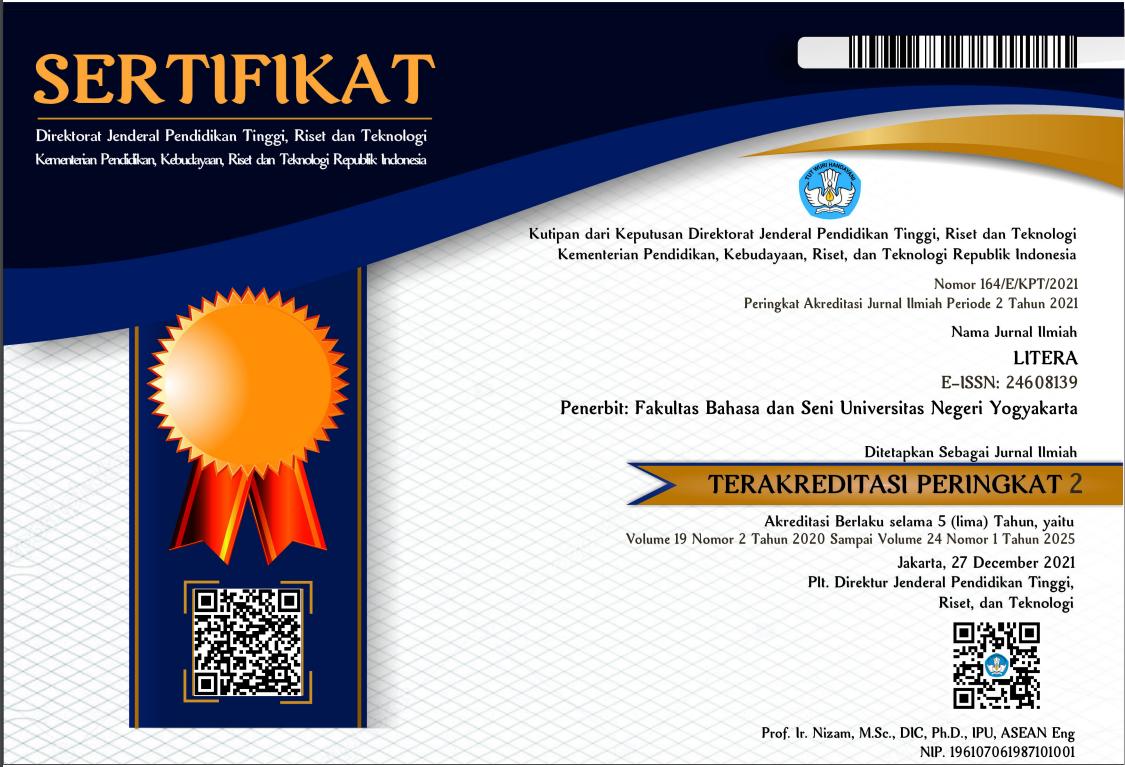KONTESTASI IDEOLOGI DALAM SASTRA PRANCIS MASA PERANG DUNIA KEDUA
Abstract
This study aims to explore the constestation of French writers’ ideologies during the era of World War II through their works. The primary data sources were “Le Mur”by Sartre, “L’Etranger” by Albert Camus, and “L’Attente de Dieu” Simone Weil. On the one hand the writers play roles as ones telling the world through their fiction, but on the other
hand they have active roles in positioning their believed ideologies. The study employed the Critical Discourse Analysis method. The discourses emphasize that God is viewed as personal, social, historical experiences contested by Sartre, Camus, and Weil in their works. They discuss God using different perspectives. The findings show that God is
philosophically positioned at the levels of being existent and non-existent, present and absent, and active and passive. Sartre and Camus are on the same line when talking about God’s absence in human existence. Meanwhile, Simone Weil, who is very religious, views that God is concretely present in human life.
hand they have active roles in positioning their believed ideologies. The study employed the Critical Discourse Analysis method. The discourses emphasize that God is viewed as personal, social, historical experiences contested by Sartre, Camus, and Weil in their works. They discuss God using different perspectives. The findings show that God is
philosophically positioned at the levels of being existent and non-existent, present and absent, and active and passive. Sartre and Camus are on the same line when talking about God’s absence in human existence. Meanwhile, Simone Weil, who is very religious, views that God is concretely present in human life.
DOI: https://doi.org/10.21831/ltr.v12i02.1549
Refbacks
- There are currently no refbacks.
______________________
__________________________________________________________________________________________________
The International Journal of Linguistic, Literature, and Its Teaching at http://http://journal.uny.ac.id/index.php/litera/ is licensed under a Creative Commons Attribution-ShareAlike 4.0 International License
__________________________________________________________________________________________________














